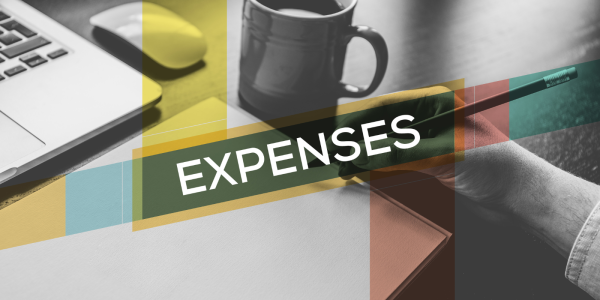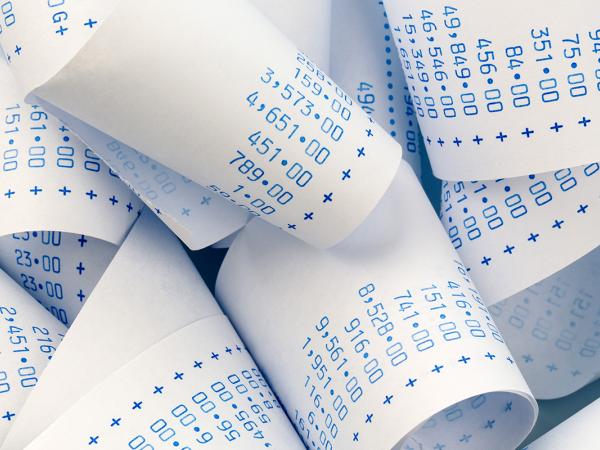Self-employed with travel and accommodation expenses? Are you claiming the right amount?
If you are self-employed, you might need to make journeys or stay away from home in the course of running your business. This article looks at some common scenarios where it might not always be clear what travel and accommodation costs qualify as a business expense, to help you decide what to claim when preparing accounts for your self assessment tax return.

Content on this page:
The law says that if you are self-employed you can deduct expenses that are wholly and exclusively for business purposes when calculating taxable profit. We explain the basic rules in our main website guidance, however, when considering travel and/or accommodation expenses, the rules can be quite complicated in some circumstances.
Is the journey a business journey or is it ordinary commuting?
For the cost of a journey to be an allowable business expense it must be wholly and exclusively for business purposes. The cost of a journey which takes you from home to your main place of work would not normally fall into this category as it would be regarded as ordinary commuting.
However, there are some circumstances where it is less clear whether the journey is for business purposes or whether it is ordinary commuting.
This might be the case if your work means you visit lots of different sites to carry out the work. There are two main scenarios where this might happen:
- working at a particular site for a period of time before moving on to another site
- regularly going to the same sites each week/month
Work carried out at lots of different locations
If you travel from home to different sites for your self-employment, temporarily working at one place until your work is complete before moving to the next, you are called an 'itinerant trader’. If you are an itinerant trader, you are likely to be based at home and keep your tools, equipment, business records etc there. HMRC will usually allow the costs of travel between home and the sites where the work is carried out as a business expense in this situation, provided you are working at the site temporarily, and the site is within a reasonable distance of your home.
The position is similar if you are based at home and don’t have a separate office or work-base elsewhere, and visit lots of different customers in your local area each day.
Work carried out at same locations in a regular pattern
But what if your work is carried out at different locations but on a regular basis, such as each week/month? In these circumstances, HMRC are more likely to regard the regular locations as permanent places of work, and so treat the journeys as ordinary commuting which is not tax deductible.
Is the journey wholly and exclusively a business journey?
If you have established that a journey is a business journey and not ordinary commuting, the next step is to consider if it is wholly and exclusively for business purposes.
Sometimes when you make a business trip you might be accompanied by someone else, for example a spouse or other family member. Therefore, the costs associated with the trip cover not just the self-employed person but also their companion. If you meet the full cost of the trip, and your companion is not connected to the self-employment in any way, this makes the costs associated with the trip not ‘wholly and exclusively’ for business purposes. Therefore, strictly, the costs are not an allowable expense in the self-employed accounts.
However, if your share of the travel costs can be clearly identified, HMRC will usually allow this proportion of the total expenses as an expense in your self-employed accounts.
A similar approach can be taken where a business trip is extended for personal reasons, if costs can be specifically allocated to the business element of the trip.
Has your client agreed to pay your travel expenses?
Sometimes you may be hired to do some work for a client and they agree to pay your travel expenses as part of the engagement. They may ask you to invoice them specifically for the actual travel expenses incurred or they may pay you a fixed amount to cover the travel expenses you will need to pay out. This fixed amount is sometimes called a ‘round sum allowance’ or ‘per diem’ allowance.
With these situations it is usually clear that the journey will qualify as a business journey for tax purposes. Therefore, the travel costs you have to pay can be claimed as a business expense in the normal way under the rules explained above. However, the income you receive from the client for the expenses must be included as income in the accounts too.
Conclusion
We have shown above that you must think carefully about what travel and accommodation expenses you claim in your self-employed accounts to minimise the chances of making an error on your tax return. In the event of an enquiry into your tax affairs by HMRC, if they do not accept that you have only claimed travel and accommodation expenses which are wholly and exclusively business-related, you might need to pay additional income tax, national insurance. HMRC can also charge interest and penalties for making mistakes with your claims.
More information
As this can be a very tricky area there are many cases where there is a dispute between the taxpayer and HMRC about whether or not some travel expenses should be allowable for tax purposes. In order to resolve disputes, cases sometimes have to be taken to independent tribunals or the courts where a judge makes a decision as to what the correct position is. HMRC’s Business Income Manual provides more detail on travel expenses and includes details of some of the relevant cases in this area too.



